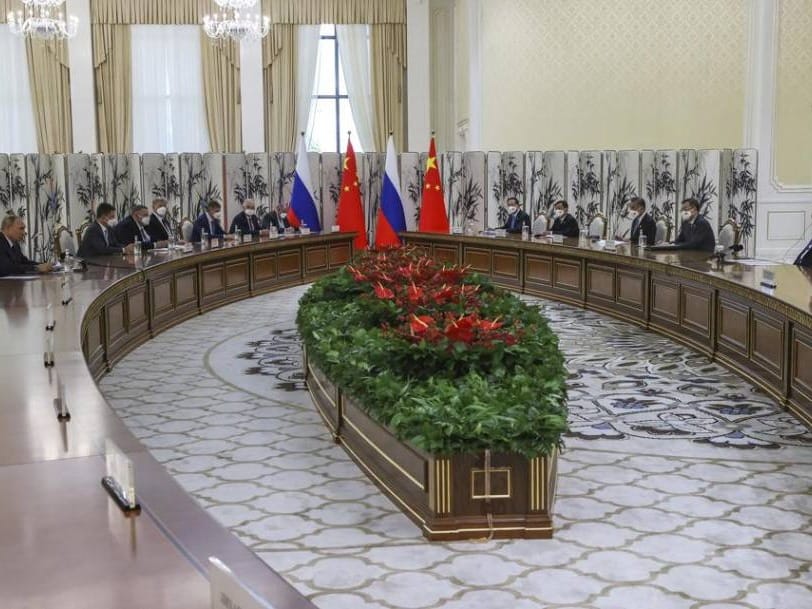China calls its strategic partnership with Russia "as stable as mountains" despite some "questions" and "concerns" raised while their leaders spoke on the sidelines of the Shanghai Cooperation Organization summit, their first meeting since the war in Ukraine began.
Russian President Vladimir Putin and Chinese leader Xi Jinping "held bilateral talks on the sidelines of the SCO summit" on Thursday in Samarkand, Uzbekistan, the Kremlin said.









